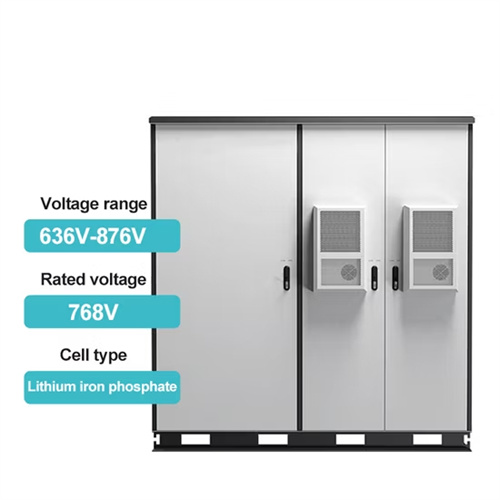About Energy storage power generation vehicle
As the photovoltaic (PV) industry continues to evolve, advancements in Energy storage power generation vehicle have become critical to optimizing the utilization of renewable energy sources. From innovative battery technologies to intelligent energy management systems, these solutions are transforming the way we store and distribute solar-generated electricity.
When you're looking for the latest and most efficient Energy storage power generation vehicle for your PV project, our website offers a comprehensive selection of cutting-edge products designed to meet your specific requirements. Whether you're a renewable energy developer, utility company, or commercial enterprise looking to reduce your carbon footprint, we have the solutions to help you harness the full potential of solar energy.
By interacting with our online customer service, you'll gain a deep understanding of the various Energy storage power generation vehicle featured in our extensive catalog, such as high-efficiency storage batteries and intelligent energy management systems, and how they work together to provide a stable and reliable power supply for your PV projects.
6 FAQs about [Energy storage power generation vehicle]
Is a hybrid energy storage solution a sustainable power management system?
Provided by the Springer Nature SharedIt content-sharing initiative This paper presents a cutting-edge Sustainable Power Management System for Light Electric Vehicles (LEVs) using a Hybrid Energy Storage Solution (HESS) integrated with Machine Learning (ML)-enhanced control.
What types of energy storage systems are used in EV powering applications?
Flywheel, secondary electrochemical batteries, FCs, UCs, superconducting magnetic coils, and hybrid ESSs are commonly used in EV powering applications , , , , , , , , , . Fig. 3. Classification of energy storage systems (ESS) according to their energy formations and composition materials. 4.
What are energy storage devices & energy storage power systems?
2. Energy storage devices and energy storage power systems for BEV Energy systems are used by batteries, supercapacitors, flywheels, fuel cells, photovoltaic cells, etc. to generate electricity and store energy .
Why is energy storage integration important for PV-assisted EV drives?
Energy storage integration is critical for the effective operation of PV-assisted EV drives, and developing novel battery management systems can improve the overall energy efficiency and lifespan of these systems. Continuous system optimization and performance evaluation are also important areas for future research.
How are energy storage systems evaluated for EV applications?
Evaluation of energy storage systems for EV applications ESSs are evaluated for EV applications on the basis of specific characteristics mentioned in 4 Details on energy storage systems, 5 Characteristics of energy storage systems, and the required demand for EV powering.
How EV technology is affecting energy storage systems?
The electric vehicle (EV) technology addresses the issue of the reduction of carbon and greenhouse gas emissions. The concept of EVs focuses on the utilization of alternative energy resources. However, EV systems currently face challenges in energy storage systems (ESSs) with regard to their safety, size, cost, and overall management issues.
Related Contents
- Vibration power generation and energy storage
- Pondside energy storage power generation
- Flywheel energy storage power generation video
- Gravity energy storage power generation device
- Gravity energy storage wind power generation
- Energy storage power generation in cote d ivoire
- Home tap water energy storage power generation
- Energy storage power generation equipment
- Small energy storage power generation system
- Bloemfontein power generation and energy storage
- Thermal power generation energy storage equipment
- Afghanistan energy storage power generation glass


